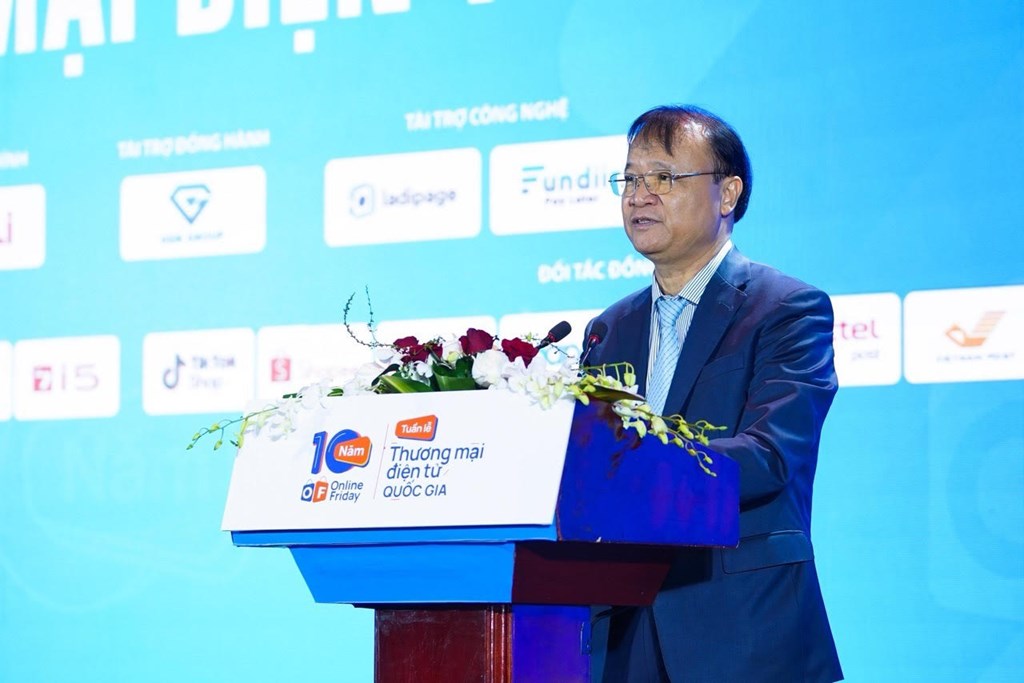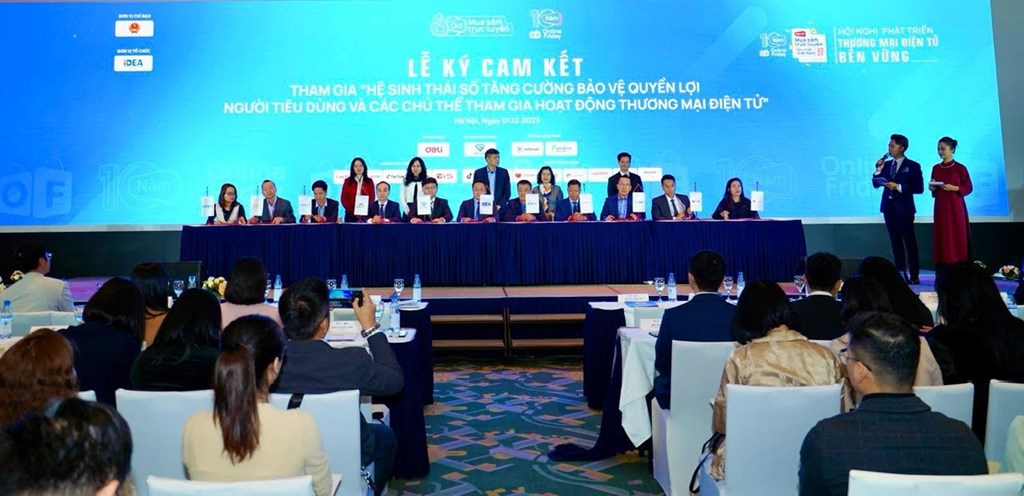Vietnam’s e-commerce market set to hit US$20.5 billion
The Vietnamese e-commerce market has established a supplementary service system to support transactions, marketing, online communication, and delivery services.
The Vietnamese e-commerce sector has consistently demonstrated remarkable annual growth ranging between 16% and 30%, with the market now on track to attain a size of US$20.5 billion by the year of this year.
| Vice Minister of Industry and Trade Do Thang Hai at the event. Source: VNA |
Vice Minister of Industry and Trade Do Thang Hai revealed the figures at a conference on the development of Vietnam’s e-commerce industry on December 1.
“This confirms the growing significance of e-commerce as a vital element in Vietnam's digital economy,” Hai added.
Concurrently, the Vietnamese e-commerce market has established a supplementary service delivery system, encompassing technology platform services to support transactions, marketing, online communication, and delivery services. This interconnected service delivery system is progressively enhancing the efficiency of connecting manufacturers with consumers.
Despite the positive outcomes, e-commerce encounters several challenges, including ensuring product origin, safeguarding personal information, insufficient logistics infrastructure growth, and building consumer confidence in online transactions.
To address these challenges, Hai suggested that priority should be placed on measures to ensure the sustainable development of the market, with an emphasis on strengthening the rights of consumers and stakeholders in e-commerce activities.
Le Hoang Oanh, Director of the Vietnam E-Commerce and Digital Economy Agency (iDEA), underscored that sustainable development in any sector requires comprehensive and positive growth, ensuring an inclusive balance in line with green trends, protects the environment, and most importantly, protects consumers.
Oanh put forth a model for guiding the development of a digital ecosystem to foster sustainable e-commerce. This model is built on activities like digital transformation, developing digital infrastructure, and formulating solutions to protect the rights of consumers and participants involved in e-commerce transactions.
| E-commerce stakeholders sign cooperation agreements. |
At the conference, experts also presented policy directions on consumer rights in the online environment and discussed the current challenges in the Vietnamese e-commerce sector from the perspectives of local regulators, banks, payment organizations, e-commerce platforms, delivery services, and e-commerce associations.
During the conference, various entities, including management agencies, e-commerce platforms, payment intermediaries, and banks, collaborated by signing a cooperation agreement to partake in the Digital Ecosystem. This collaboration aims to protect the rights of consumers and businesses involved in e-commerce transactions.
The conference included a discussion session focusing on "Digital ecosystem solutions to enhance the protection of consumer rights and subjects participating in e-commerce activities in Vietnam," which attracted considerable attention and triggered meaningful exchanges among attending businesses.
Nguyen Lam Thanh, representing TikTok Vietnam, shared the platform's commitment to leveraging its user community and effective sales support solutions to assist businesses, particularly Vietnamese micro, small, and medium enterprises, in achieving positive revenues. TikTok Vietnam also expressed ongoing efforts to provide users with a seamless, creative, and secure shopping and entertainment experience.
Oanh from the iDEA highlighted that the insights and recommendations shared by various entities at the conference will enhance the current legal framework and policies for protecting consumer rights in the online environment.
“This ongoing improvement aims to advise government leaders on suitable directions and plans to promote the development of e-commerce as a key contributor to the overall growth of the digital economy,” she suggested.













